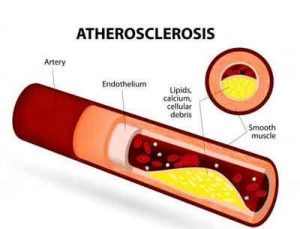- Home
- Editorial
- News
- Practice Guidelines
- Anesthesiology Guidelines
- Cancer Guidelines
- Cardiac Sciences Guidelines
- Critical Care Guidelines
- Dentistry Guidelines
- Dermatology Guidelines
- Diabetes and Endo Guidelines
- Diagnostics Guidelines
- ENT Guidelines
- Featured Practice Guidelines
- Gastroenterology Guidelines
- Geriatrics Guidelines
- Medicine Guidelines
- Nephrology Guidelines
- Neurosciences Guidelines
- Obs and Gynae Guidelines
- Ophthalmology Guidelines
- Orthopaedics Guidelines
- Paediatrics Guidelines
- Psychiatry Guidelines
- Pulmonology Guidelines
- Radiology Guidelines
- Surgery Guidelines
- Urology Guidelines
New study reveals new drug target for gout and other inflammatory diseases

Particle-driven diseases sound exotic and include things like silicosis and asbestos, but actually also include much more common diseases like Alzheimer's, gout and even atherosclerosis. A new report published online in the Journal of Leukocyte Biology suggests a potential drug target for particle-driven diseases like these and many others. Specifically, the study reveals that particle-induced cell death depends on multiple redundant cathepsins, or enzymes used to digest proteins. By inhibiting or silencing these cathepsins in macrophages (white blood cells that ingest foreign particles), the researchers found that several key proinflammatory events induced by sterile particles are blocked, including cell death.
"Having finally overcome the barrier to demonstrating the role of cathepsins in triggering particle-induced inflammatory cell death, we may now ask what other non-particulate inflammatory pathways may involve cathepsins and why such a role for these enzymes has evolved," said Gregory M. Orlowski, M.D., Ph.D., a researcher involved in the work from the University of Massachusetts Medical School in Worcester, Massachusetts. "Our study sheds light on basic aspects of inflammatory mechanisms that may have far-reaching implications."
To make their discovery, Orlowski and colleagues compared macrophages from genetically normal mice with macrophages from mice lacking one or more of these cathepsin enzymes. The expression of cathepsins was further suppressed using a genetic tool called small interfering RNA. Finally, these groups of macrophages were stimulated with disease-causing particles like silica, which is the causative agent of a fibrotic lung disease called silicosis. The researchers found that the macrophages that genetically lacked multiple cathepsin enzymes were less susceptible to particle-induced pro-inflammatory cell death. Moreover, the number of absent cathepsins corresponded to the degree of reduction in pro-inflammatory cell death.
"Despite some available drugs, particle-driven diseases are still a huge medical problem and a major health care cost," said John Wherry, Ph.D., Deputy Editor of the Journal of Leukocyte Biology. "The identification of a key set of enzymes unexpectedly involved in this inflammatory pathway opens the door for new classes of drugs to treat these diseases."
For more details click on the link : Gregory M. Orlowski, Shruti Sharma, Jeff D. Colbert, Matthew Bogyo, Stephanie A. Robertson, Hiroshi Kataoka, Francis K. Chan, Kenneth L. Rock. Frontline Science: Multiple cathepsins promote inflammasome-independent, particle-induced cell death during NLRP3-dependent IL-1β activation. Journal of Leukocyte Biology, 2017; 102 (1): 7 DOI: 10.1189/jlb.3HI0316-152R

Disclaimer: This site is primarily intended for healthcare professionals. Any content/information on this website does not replace the advice of medical and/or health professionals and should not be construed as medical/diagnostic advice/endorsement or prescription. Use of this site is subject to our terms of use, privacy policy, advertisement policy. © 2020 Minerva Medical Treatment Pvt Ltd